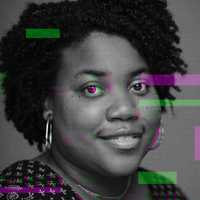One year on, what have we learned? Join us for Interaction 22 ↗
workshop
OnlyFans: Redesigning for Sex Work
Brooke Bosley, Abby Golfo
02 Feb, 8:00 pm
2 h
Let's redesign OnlyFans to be equitable of experiences of sex workers and other marginalized individuals.
Description
In early March, businesses, schools, and other facilities began to shut down due to COVID-19. As many establishments started to change how their employees interacted with customers to follow CDC guidelines, it became difficult for some professions to perform work, like sex work. GoFundMe accounts and grassroots organizations began putting together resources for sex workers; a large percent are Black transwomen who already experience heightened vulnerability. For fortunate individuals, apps like OnlyFans and Instagram offered a place to sell content and bring in other revenue streams and protected individuals from catching COVID. One thing that has become apparent through COVID-19 is that not all tech platforms are designed to be equitable. OnlyFans presents itself as one such platform that has not entirely been equitable for many. For instance, the platform does not have an explore page, so members have to find alternative ways to promote themselves and build a community. It also has been a way for high-profile celebrities to take clientele and present barriers to these sex workers. One example is actress Bella Thorne who scammed people into paying millions to research sex work for an upcoming film. This act was unfair to many workers who do not have the platforms or already substantially profit. The workshop will ask participants to redesign OnlyFans by recentering the app around the experiences of sex workers. Through pulling in a series of design frameworks from Creative Reaction Lab, Holistic Design, and Design Justice, we hope to use these methodologies as a starting point on how to apply a few of these concepts to creating equitable experiences. The session's goal is for designers to understand how to think more broadly about the impact these tools can have on vulnerable communities.
Meet the speakers
My name is Brooke Bosley, and I am a third-year Ph.D. in Digital Media, specializing in Black Media, at the Georgia Institute of Technology. My dissertation focuses on the intersection of Human-Computer Interaction, Afrofuturism, Black Feminism, and Race & Technology. I hold an MS in Digital Media from the Georgia Institute of Technology, as well as a BA in Integrated Digital Media (a self-design interdisciplinary degree) with minors in communications and mathematics from Wesleyan College (in Macon, Georgia). I have taught educational workshops on robotics and technology through the Georgia Tech’s, College of Computing. I have also volunteered with FIRST Robotics and the National Center for Women & Information Technology (NCWIT). Most recently, I have volunteered with a local architecture and design foundation, where I led educational workshops for K-5th graders on community design. I have worked as a freelance designer with a startup, as well as a web designer with the Georgia State University, College of Education. I have also interned with Microsoft as a design researcher for two years. When I am not working, studying, volunteering or focused on completing my dissertation, I am cross-stitching or reading. I also love exploring restaurants in Atlanta, GA. Please feel free to connect if something on the portfolio is of interests.
My goal is to positively impact people’s lives by meeting people where they are. I'm a research-focused designer dedicated to building impactful products and services. I'm interested in understanding how people move through their worlds and I love working within multidisciplinary teams so we can ask, learn, and iterate together. As a UX Designer at M&T Bank, I focus on service design and research. I have a master’s degree in Digital Media from Georgia Tech and bachelor’s degrees in Communication and Sociology from SUNY Geneseo. In addition to design, I love video, sociology, and National Parks. My pronouns are she/her.

